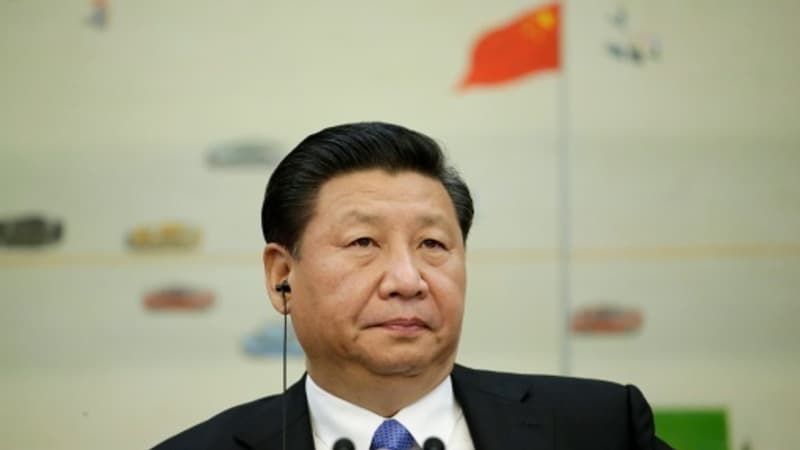Chinese President Xi Jinping’s stay in Saudi Arabia from December 7 to 10 was not going to be part of the ordinary. Riyadh and its allies, therefore, have seen things very big, around three summits in a row for their guest, first with Saudi Arabia, then the Gulf Cooperation Council (GCC) and finally, the Arab League. A deployment of protocol necessarily scrutinized by the World Policy Conference (WPC), organized at the same time in Abu Dhabi.
All the satisfaction was expressed on Sunday night by the head of Saudi diplomacy, Faisal bin Farhan Al Saud, who came to close the exchanges in the Emirati capital, for whom the prospects for cooperation with the 2nd world economy are “incredible”. , either for your country or for other Arab nations.
An official of the United Arab Emirates government, meeting on the sidelines of the WPC, for his part, considers that this unprecedented succession of formal summits, an unusual treatment until now essentially reserved in the region for the president of the United States, “comes to satisfy the ego policy” of the Chinese, “strengthening their status. An apparently corroborated observation, when we see the president of the Beijing International Institute for Strategic Studies, Wang Jisi, during a round table on the Sino-American “rivalry”, evoking the “more ambitious” character of this meeting between his country and the other five from the GCC.
The intention from then on for the Gulf monarchies is to systematize this format at the end of each year, probably in 2023 with ASEAN, the organization of Southeast Asia. Also according to the Emirati government source, for the Saudi kingdom it also had a “symbolic value” in the face of the Democrats in power in Washington who, for a time, proclaimed their intention to ban Crown Prince Mohammed Bin Salman. of the international community, after the assassination in 2018, in the Saudi Arabian consulate in Istanbul, of the Saudi journalist Jamal Khashoggi.
geopolitics of energy
So, the Saudis are not deprived of remembering during this conference in Abu Dhabi, once again, the factors of the economic equation with China, the first trading partner and outlet for 20% of its oil exports. And exchanges that tend, we argue here, to diversify and become more sophisticated.
What should you go back to? Petrochemical, but also the potential of renewable energy. During a session on Saturday, Khaldoon Khalifa Al Mubarak, CEO of the Abu Dhabi Mubadala sovereign wealth fund, highlighted the 80% of the global solar industry concentrated in China. “We also want to benefit from it,” says a senior Emirati official.
“Very naive” idea
The “geoeconomics of a fragmented world,” to use the title of a Friday roundtable, offers, at the same time, some scope for distancing from the United States. For a South Korean economist, who has long advised his government, the way Xi Jinping’s visit to Riyadh unfolded shows that Saudi Arabia “will become more independent from Western countries.”
However, although he welcomes “the clear vision” that the Chinese have of “what they want”, the Emirati government official considers the “simplifying” idea in vogue “very naive” of a China that has come “to replace” the United States , which the Saudi director of a Jeddah-based Gulf research center also highlighted in a speech on Sunday afternoon. Abdulaziz Othman Sager assures that “the economic relationship with Beijing has not developed into a security policy relationship”, the Chinese are not the brightest of all things façon has passed in measure, selon lui, de fournir un cadre de protection armée au Middle East.
‘Mixed signals’
The goal, for Riyadh and its allies in the Arabian Peninsula, would first and foremost be to take into account the growing lack of American “engagement” in the region. The Saudi Minister of Foreign Affairs evokes the “need for a strategic dialogue” with them, at the bilateral level, but also within the GCC bodies.
The Emirati source judges that Washington will now have to respond to several questions of the highest strategic importance for the United Arab Emirates, specifically, with regard to a security and defense pact in good and due form for 30 years and a real availability of State-of-the-art military equipment, especially for air defense. “I have to know, otherwise I have to find this team elsewhere,” she warns, insisting on the absolute necessity of planning. However, Saudi expert Abdulaziz Othman Sager deplores seeing only “confusing signals” coming from the United States, including conflicting hypotheses of a future redeployment of US troops in the region.
Convinced of their ability to assert what they consider to be their fundamental interests, the Gulf monarchies believe they are in a position not to define them according to the antagonism between the two largest economies in the world. Some veterans of American foreign policy, who have spoken here, bitterly deplore it. From the point of view of Stuart Eizenstat, who was Treasury No. 2 during the Clinton administration, among others, this is what it costs the United States to have left a “great void” in the region. Always in this conviction that only the United States has to decide.
Source: BFM TV


